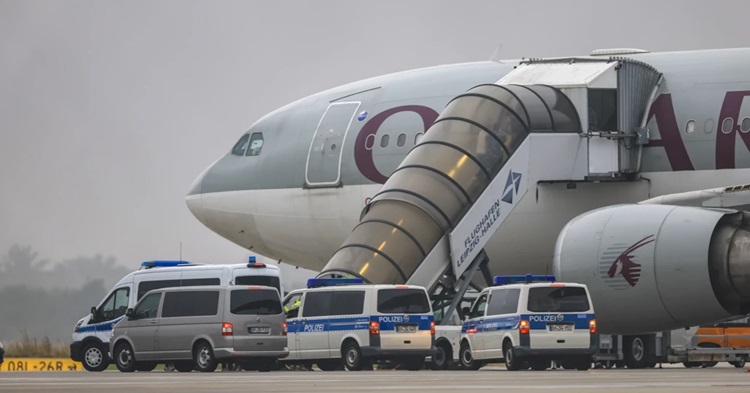Germany deports 81 Afghan nationals to their homeland in 2nd flight since the Taliban's return


Germany deported 81 Afghan men to their home country on Friday, marking the second such repatriation since the Taliban regained control of Afghanistan in 2021 and the first under Chancellor Friedrich Merz's new government, which has vowed to implement stricter migration policies.
All of the deported individuals were men whose asylum applications had been denied and who had previously come to the attention of German judicial authorities. The deportation was conducted with the assistance of Qatar following several weeks of diplomatic negotiations. While Chancellor Merz confirmed that contact had been made with Afghan authorities, he declined to provide further details.
Germany had resumed deportations to Afghanistan over 10 months ago under the previous government led by then-Chancellor Olaf Scholz. At the time, Scholz pledged to intensify the removal of rejected asylum seekers.
Although Germany has not formally severed diplomatic ties with Afghanistan, it does not recognize the Taliban-led government in Kabul. “The key issue is how we engage with this regime, and for now, our interaction will remain at a technical coordination level,” Merz said during a press briefing in Berlin.
The Interior Ministry signaled intentions to carry out additional deportations to Afghanistan, though no specific timeline was provided.
Merz has made tightening immigration controls a central policy goal. Since taking office in May, his government has increased border police presence, expanded the border checks started under Scholz, and implemented policies to turn back certain asylum seekers. It has also suspended family reunification programs for many migrants.
Germany has seen a notable drop in asylum applications — from 329,120 in 2023 to 229,751 last year — with numbers continuing to decline in 2025. “These figures suggest we are moving in the right direction, but the work is not yet complete,” Merz said.
The deportation flight came ahead of a scheduled migration summit hosted by Interior Minister Alexander Dobrindt. The meeting — taking place on Germany’s highest mountain, the Zugspitze, near the Austrian border — includes ministers from France, Poland, Austria, Denmark, and the Czech Republic, along with the EU's migration commissioner, Magnus Brunner.
